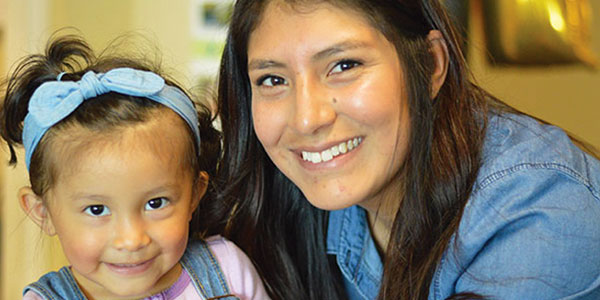
The much awaited “Public Charge” rule change has released by the the Trump Administration. The proposed regulation would hurt working families moving through the legal immigration pathways. The new rule would put “safety net” programs out of reach of millions of US citizen children.
The draft regulations would vastly expand the definition of “public charge” – someone who is dependent on government benefits and thus may be denied a green card – to include not only people who receive cash benefits or need long term care, but also those who participate in numerous “safety net” programs used by millions of working Americans. It would also make it easier to deny permanent residency to anyone earning less than 250% of the federal poverty line ($62,750 for a family of four).
“This is an attack on our legal immigration system and a betrayal of our history of welcoming working-class immigrants,” says Jessica Piedra, Chair of the KC Metro Immigration Alliance (KCMIA).
“This rule would radically change who we are as a nation and must be prevented from being implemented.”
The Trump administration has been seeking to redefine “public charge” for well over a year, and several draft proposals were leaked to the media. As news spread through immigrant communities, advocates, educators and health care and social service providers began to see families drop out of programs.
Trump’s “Public Charge” Rule Change Hurts Immigrant Families: KC Coalition Organizes to Save Access to Food and Medical Care Programs
The much awaited “Public Charge” rule change has released by the the Trump Administration. The proposed regulation would hurt working families moving through the legal immigration pathways. The new rule would put “safety net” programs out of reach of millions of US citizen children.
The draft regulations would vastly expand the definition of “public charge” – someone who is dependent on government benefits and thus may be denied a green card – to include not only people who receive cash benefits or need long term care, but also those who participate in numerous “safety net” programs used by millions of working Americans. It would also make it easier to deny permanent residency to anyone earning less than 250% of the federal poverty line ($62,750 for a family of four).
“This is an attack on our legal immigration system and a betrayal of our history of welcoming working-class immigrants,” says Jessica Piedra, Chair of the KC Metro Immigration Alliance (KCMIA).
“This rule would radically change who we are as a nation and must be prevented from being implemented.”
The Trump administration has been seeking to redefine “public charge” for well over a year, and several draft proposals were leaked to the media. As news spread through immigrant communities, advocates, educators and health care and social service providers began to see families drop out of programs.
The draft rule released yesterday by the U.S. Department of Homeland Security specifically exempts emergency shelters and aid – and, importantly, it excludes benefits received by U.S. citizen children of immigrants. However, it still includes Medicaid coverage, housing assistance, nutrition programs, and even Medicare Part D discounts for seniors.
The rule is not retroactive: once the 60-day public comment period has been completed and the final rule is approved, there will be a 60-day grace period. This means that the earliest that immigrants would need to withdraw from programs to avoid being penalized would be in 120 days, but they should consult with their immigration counselors or attorneys before making a decision.
The KC Metro Immigration Alliance ( KC MÍA) is a roundtable comprised of highly passionate members representing organizations in the non-profit, legal, medical and corporate fields. KC MÍA acts as an information hub, disseminating the most up to date news and action alerts regarding local, state, and national immigration legislation.
KCMIA is part of the national Protecting Immigrant Families campaign, which was launched to oppose any “public charge” expansion that harms families. We have been working with coalition partners, policy-makers and allies to raise awareness of the potentially devastating impact of the rule change, and will be collecting comments during the 60-day review period. KCMIA encourages all agencies and partners to sign on and be ready to submit a comment opposing these changes to the Public Charge rules.
Cambio de la regla de “carga pública” de Trump perjudica a las familias inmigrantes:
Coalición de KC se organiza para salvar acceso a los programas de alimentos y atención médica
El tan esperado cambio de la regla de “Carga Pública” ha sido lanzado por la administración de Trump. La regulación propuesta dañaría a las familias trabajadoras moviéndose a través de las vías legales de inmigración. La nueva norma pondría los programas de “red de seguridad” fuera del alcance de millones de niños ciudadanos de los EE. UU.
El borrador de las reglamentaciones expandiría ampliamente la definición de “carga pública” – alguien que depende de los beneficios del gobierno y por lo tanto se le puede negar la residencia permanente – para incluir no solo a las personas que reciben beneficios en efectivo o necesitan cuidados a largo plazo, sino también a aquellos que participan en numerosos programas de “red de seguridad” utilizados por millones de estadounidenses que trabajan. También sería más fácil negar la residencia permanente a cualquier persona que gane menos del 250% de la línea de pobreza federal ($62,750 para una familia de cuatro).
“Esto es un ataque a nuestro sistema legal de inmigración y una traición a nuestra historia de darle la bienvenida a inmigrantes de clase trabajadora”, dice Jessica Piedra, presidenta de KC Metro Immigration Alliance (KCMIA). “Esta regla cambiaría radicalmente quiénes somos como nación y se debe evitar que se implemente”.
La administración de Trump ha estado tratando de redefinir la “carga pública” por más de un año, y varios borradores de las propuestas se filtraron a los medios. A medida que la noticia se extendió a través de las comunidades de inmigrantes, los defensores, los educadores y los proveedores de servicios sociales y de cuidado de la salud comenzaron a ver a las familias abandonar los programas.
El borrador de la regla emitida ayer por el Departamento de Seguridad Nacional de los EE. UU. exime específicamente a los albergues de emergencia y ayuda, y, lo que es más importante, excluye los beneficios recibidos por los hijos estadounidenses de inmigrantes. Sin embargo, todavía incluye cobertura de Medicaid, asistencia de vivienda, programas de nutrición e incluso descuentos de la Parte D de Medicare para personas mayores.
La regla no es retroactiva: una vez que el período de 60 días para comentarios públicos ha sido completado y la regla final sea aprobada, habrá un período de gracia de 60 días. Esto significa que lo más temprano que los inmigrantes necesitarían retirarse de los programas para evitar ser penalizados sería en 120 días, pero deberían consultar con sus asesores o abogados de inmigración antes de tomar una decisión.
KC Metro Immigration Alliance (KC MIA) es una mesa redonda compuesta por miembros altamente apasionados que representan a organizaciones sin fines de lucro, legales, médicas y corporativas. KC MIA actúa como un centro de información, diseminando las noticias más recientes y alertas de acción con respecto a la legislación de inmigración local, estatal y nacional.
KCMIA es parte de la campaña nacional Protegiendo Familias Inmigrantes, que fue lanzada para oponerse a cualquier expansión de “carga pública” que perjudique a las familias. Hemos estado trabajando con socios de la coalición, legisladores y aliados para crear conciencia sobre el impacto potencialmente devastador del cambio en las reglas, y recopilaremos comentarios durante el período de revisión de 60 días. KCMIA alienta a todas las agencias y socios a firmar y estar preparados para enviar un comentario que se oponga a estos cambios a las reglas de carga pública.










